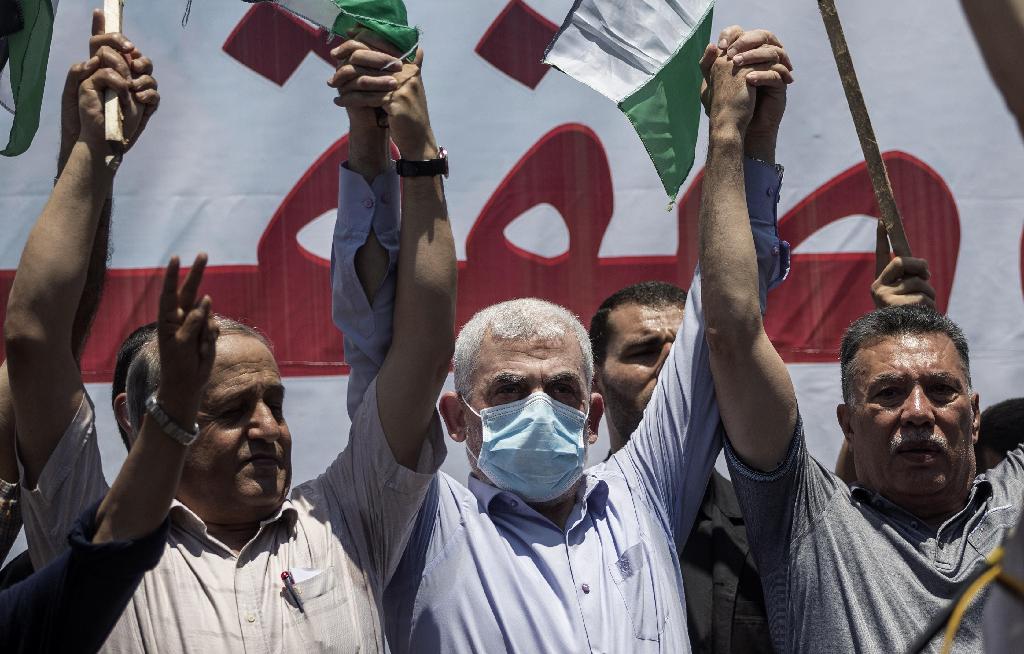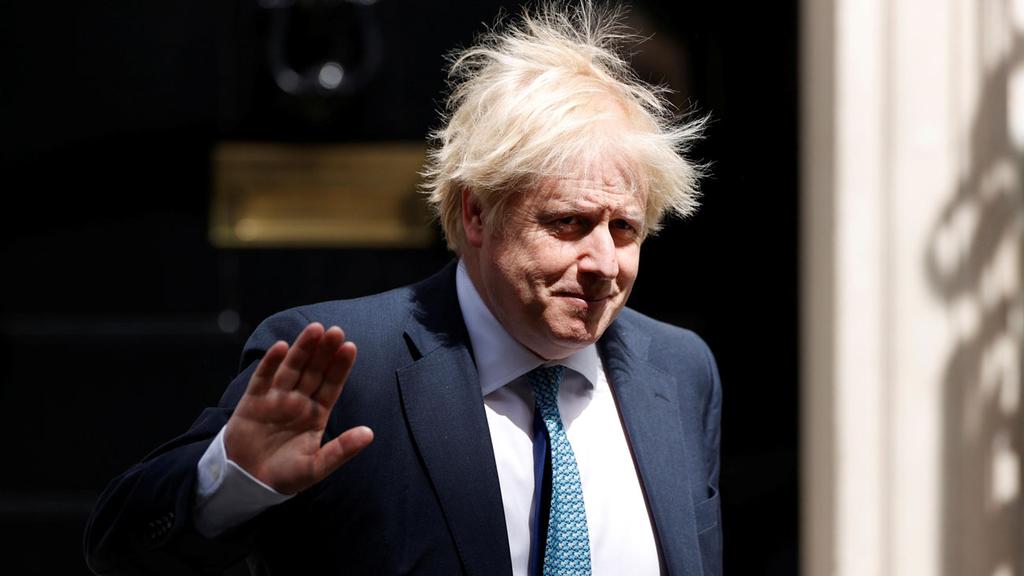Getting your Trinity Audio player ready...
Palestinians in the West Bank and Gaza Strip took to the streets Wednesday to protest Israel's proposed annexation plans as Jerusalem appeared to have delayed an announcement on the controversial project.
As per a coalition agreement signed by the country's two largest parties (Likud and Blue & White), July 1 was supposed to mark the date that the government would be free to pursue its plans to extend Israeli sovereignty into disputed West Bank territory by implementing U.S. President Donald Trump's Middle East peace proposal.
4 View gallery


A Palestinian demonstrator shouts slogans as he takes part in a protest against Israel's annexation plan, July 1, 2020
(Photo: DPA)
Several thousand brandished Palestinian flags and placards condemning Trump at a rally in Gaza, while demonstrations were building in the West Bank cities of Ramallah and Jericho.
"The resistance must be revived," Gaza protester Rafeeq Inaiah told AFP. "Israel is afraid of force."
Netanyahu has voiced enthusiastic support for the Trump plan - which has been roundly rejected by the Palestinians - but Israel's prime minister has not revealed his intentions for enacting the U.S. proposals.
4 View gallery


Hamas leader in the Gaza Strip, Yahya Sinwar, center, attends a Gaza City demonstration against West Bank annexation, July 1, 2020
(Photo: AP)
The Ramallah-based Palestinian Authority has said it is willing to renew long-stalled talks with Israel - but not on terms outlined by Trump.
While the U.S. has offered tacit support for immediate annexation, most of the international community is vocally opposed to the project.
The criticism came first from UK Prime Minister Boris Johnson, who wrote in an exclusive opinion piece published by Ynet on Wednesday that although he was a "passionate defender of Israel," he viewed annexation as "contrary to Israel's own long-term interests," and added that "annexation would represent a violation of international law."
In rare censure of Israel by Australia, the latter's foreign ministry issued a statement Wednesday warning against "unilateral annexation or change in status of territory on the West Bank."
France, Germany along with several other European states and the United Nations all oppose annexation, as do Gulf Arab states, with which Israel has increasingly sought warmer ties.
Paris on Wednesday also warned that that any Israeli annexation in the West Bank would be in violation of international law and would have consequences.
4 View gallery


Fatah official Jibril Rajoub and Palestinian activists protest near Jericho against Israel's plan to annex parts of the West Bank, July 1, 2020
(Photo: Reuters)
"Annexation of Palestinian territories, whatever the perimeters, would seriously throw into question the parameters to resolve the conflict," French Foreign Minister Jean-Yves Le Drian told a parliamentary hearing.
"An annexation decision could not be left without consequences and we are examining different options at a national level and also in coordination with our main European partners."
Jordan, one of only two Arab nations that have diplomatic ties with Israel, has warned that annexation could trigger a "massive conflict" and has not ruled out reviewing its own 1994 peace treaty with the Jewish state.


